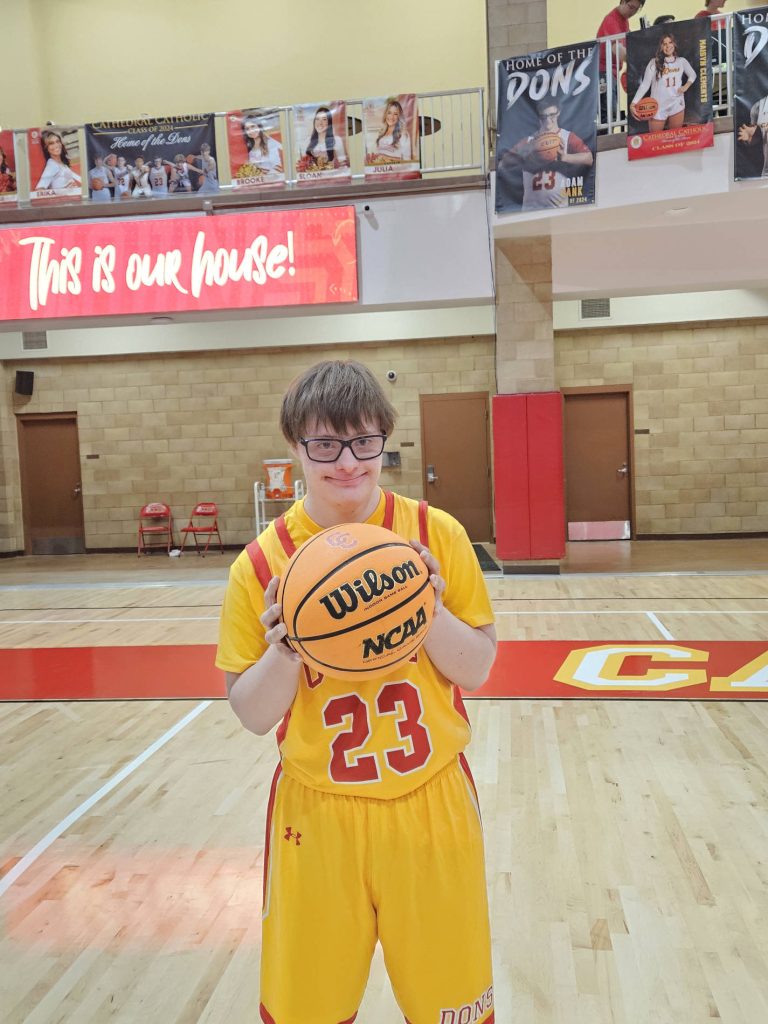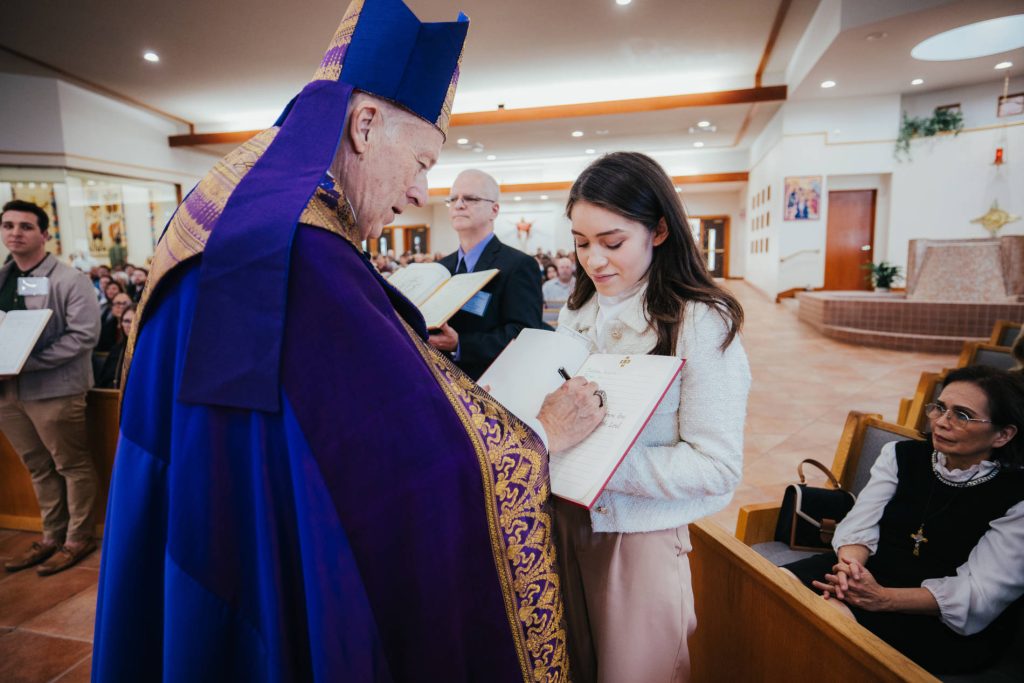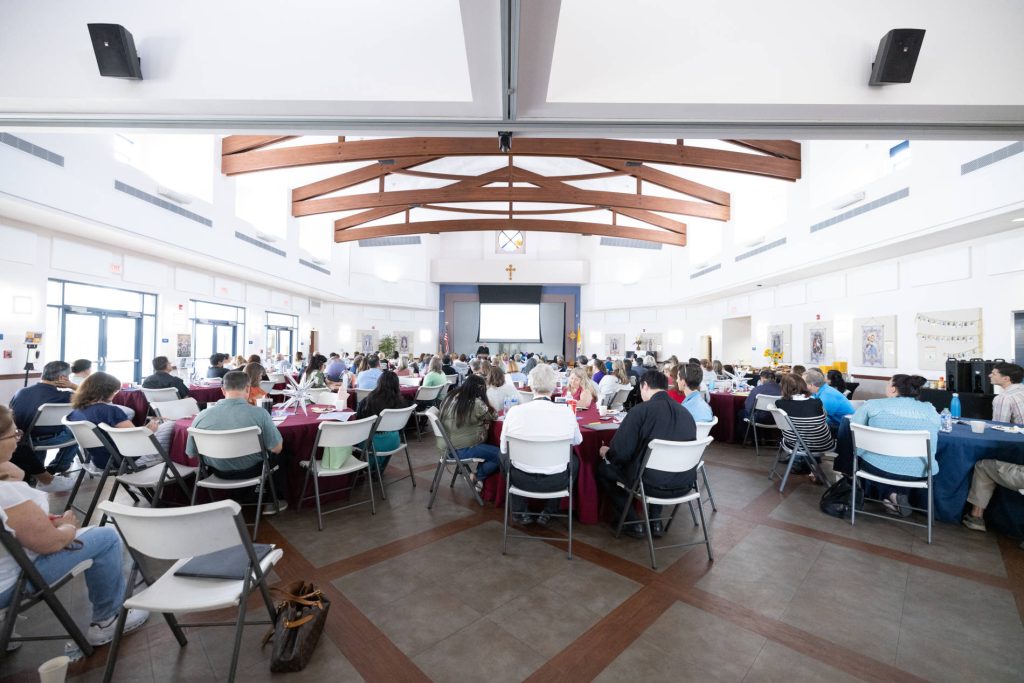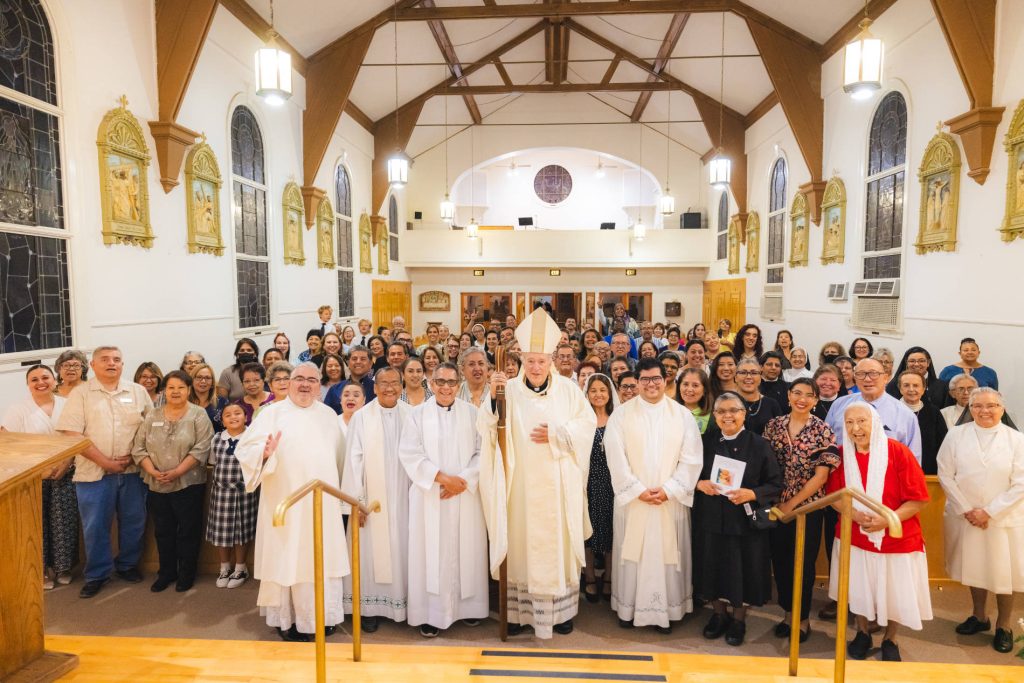SAN DIEGO — Many parishes in the Diocese of San Diego welcome children with special needs whose parents want them to learn about the Catholic faith, preparing them to receive God’s grace through the sacraments.
“It’s very important for the families to know that they can reach out to us and that we’ll work with them,” said Heather Kostyzak, director of religious education at St. Michael Parish in Poway.
Her counterpart at Mission San Luis Rey Parish in Oceanside, Sandra Dominguez, had similarly encouraging words: “God calls everyone … and they all belong and have a place here.”
The women are just two examples of the many catechists across the diocese who are ready to tailor their parish’s faith-formation and sacramental-preparation programs to accommodate those with special needs.
On July 20, the diocesan Office for Evangelization and Catechetical Ministry sponsored the first in a planned series of workshops on ministry to those with special needs. More than 20 people, including directors of catechetical ministry, catechists and other parish leaders attended.
Marioly Galván, the chancellor and director of the Office for Evangelization and Catechetical Ministry, said the diocese is “committed to providing additional support for our parishes and their leaders” in ministering to individuals with special needs and their families.
“Many times, parishes are faced with limited resources and that impacts the ability to better serve our children and families,” she said. “Our hope is that, by providing a sustainable plan for formation and support … the diocese will be better equipped to address these situations.”
About two years ago, Kostyzak had the experience of providing one-on-one sacramental preparation to a child with special needs.
The second-grader’s mother had approached her about preparing her son to receive the sacraments of reconciliation and first Communion. The challenge was that he was on the autism spectrum, had Attention-Deficit/Hyperactivity Disorder (ADHD), and was only partially verbal.
“It was a big thing even to establish eye contact (with him),” Kostyzak said.
Though the parish’s sacramental-preparation classes are typically offered on Tuesday and Wednesday evenings, that wasn’t an option in this case. The boy took medication that typically began to wear off by the evening, so Kostyzak scheduled Saturday morning sessions instead.
Kostyzak also adapted her instructional style to meet her student’s needs. She said that, on a few occasions, they took walks because he learned better that way. She also lent him the parish office’s plush doll of Pope Francis, which he often held during their sessions together.
When it came time for him to receive his first Communion, that took place during a regular Saturday morning Mass rather than at a special liturgy for an entire class of first communicants. This was a deliberate choice, so that there would be fewer people in attendance and, resultingly, it would be a less stressful experience for him.
Despite the fact that there was only one first communicant, Kostyzak said she still decorated the church that morning just as she would have done if there had been a large group of them. And, in his homily, the pastor did not neglect to mention the boy’s first Communion.
For Dominguez, the issue of special needs hits close to home. She is the mother of two sons who are on the autism spectrum. Her 9-year-old, Isaiah, has a mild case; her 8-year-old, Noah, is severely autistic with ADHD and a speech delay.
Isaiah is preparing to receive the sacraments of reconciliation and first Communion next spring; to accommodate his special needs, he is in a class with students of a lower grade level and is accompanied in class by an older cousin. Noah will enter the program this year.
“I know what it feels like to struggle to find a place where (children with special needs) fit in, where people who are working with them can understand … that they require a little bit more attention, or more time, or just more consideration with certain things,” Dominguez said,
She said her first step when she is approached about enrolling a child with special needs into faith-formation or sacramental-preparation classes is to schedule a meeting with the family. She wants to ascertain the child’s needs and what accommodations might be required.
In cases where a child’s condition is mild, it’s often possible to enroll him in the parish’s regular classes, she said. But, for those with more significant challenges, the parish offers a special class that is uniquely tailored to them.
The class size is limited to about five students, two or three classroom aides are assigned to work with them, and the lesson plan favors art projects and music-related activities over heavy reading assignments.
Dominguez said that, within the next few months, the parish plans to offer a monthly Mass specifically for families with special needs. Everything from the time of day that the Mass will be celebrated to the types of liturgical music selected will be decided based on their likely impact on a person with special needs.
“We’re trying to find ways to not just (have them) receive the sacrament and leave,” she said, “but for them to be integrated into the community and the life of the parish and be one in communion with everyone else.”









